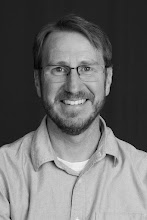I'm rereading Nicholas Carr's book The Shallows. I relied on this author's wide ranging research while writing my dissertation. His work helped as I examined the Internet's effects on the human brain. Returning to the book I was struck by what he writes about the brain's ability to transform itself in order to restore function to injured parts of the body. He writes, "tests on people who have lost arms or legs in accidents also reveal how extensively the brain can reorganize itself" (29). On the next page, Carr describes the recovery of a man named Michael Bernstein who, "suffered a severe stroke when he was fifty-four, damaging an area in the right half of his brain that regulated movement in the left side of his body." Under an experimental therapy program offered by neuroplasticity researcher, Edward Traub, "Bernstein used his left hand and his left leg to perform routine tasks over and over again, " for up to eight hours a day, six days a week, stimulating the "neurons and synapses to form new circuits". Carr describes the miraculous turnaround, "within a matter of weeks, he regained nearly all of the movement in his hand and his leg" (30).
Reading about the brain' plasticity reminded me of the resurrection of the body. Is not the rewiring that happens in the brain, restoring certain functions of the body that were lost, something of a resurrection? Both for the brain and the body parts? Something that ceases to function (i.e., dies) miraculously receives new life through finding new pathways that bring restoration? I know very little about medicine and biology but it strikes me as something to what Christians believe happens to the body as a whole at the Parousia of Jesus Christ.





